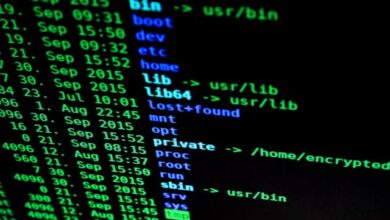Is your Dedicated Server Secure? A Look at Hosting in France
Is your Dedicated Server Secure? A Look at Hosting in France
When it comes to online business operations, the importance of security can’t be overstated, especially if your website or application runs on a dedicated server. Given the surge in cyber threats, choosing a hosting location like France, known for its robust legal framework and advanced infrastructure, can be a wise move. But is Dedicated Server Hosting in France as secure as it’s touted to be? Let’s dive into the intricacies of dedicated server security in this region. The premise of not sharing server space inherently reduces vulnerabilities, making dedicated servers in France a fortress in the digital landscape. With providers continuously updating and advancing their systems, businesses benefit from a robust platform designed to mitigate risks and protect digital assets efficiently.
Table of Content
- The Legal Framework Enhancing Server Security in France
- Primary Laws and Regulations
- Key Regulatory Bodies
- Important Considerations and Areas for Exploration
- Advanced Security Features of French Dedicated Servers
- The Role of Physical Security in Protecting Your Data
- Key Elements of Physical Security
- How Physical Security Complements Digital Security
- Customizable Security: Tailoring Your Dedicated Server to Your Needs
- Navigating the Challenges: Maintaining Security in a Dynamic Landscape
- Conclusion
- FAQs
The Legal Framework Enhancing Server Security in France
Here’s a breakdown of the legal framework enhancing server security in France, along with key considerations and areas where you may want to research further: –
Primary Laws and Regulations
General Data Protection Regulation (GDPR): This is the core regulation across the EU governing data protection and privacy. It has strict standards for how companies and organizations must handle the personal data of European citizens, including data stored on servers. Key GDPR considerations include:
- Consent and transparency in data collection
- Strict breach notification requirements
- Data subject rights (right to access, rectification, erasure, etc.)
- Heavy potential fines for non-compliance
The French Data Protection Act: This French law complements the GDPR, providing further specifications for data processing within France.
Network and Information Security (NIS) Directive: Transposed into French law, the NIS Directive establishes cybersecurity requirements for operators of essential services (energy, transport, health, etc.) and certain digital service providers.
The Act on Programming the Military (LPM): Includes cybersecurity considerations for organizations linked to national defenses and security.
Key Regulatory Bodies
The National Commission on Informatics and Liberty (CNIL): France’s independent data protection authority. Responsibilities include:
- Issuing guidance and recommendations on data protection laws
- Investigating potential breaches
- Imposing sanctions for non-compliance
The National Cybersecurity Agency of France (ANSSI): This agency provides technical cybersecurity guidance and sets security standards for both the government and critical sectors.
Important Considerations and Areas for Exploration
- Sector-Specific Regulations: In addition to the broad legislation, there may be additional sector-specific regulations for industries like finance or healthcare. Be sure to investigate these if relevant to your field.
- Cloud Computing: If you’re using cloud services based in France, you’ll need to consider the provider’s security compliance and any additional contractual agreements needed.
- Incident Response Planning: French laws have requirements for breach notification. It’s crucial to have a robust incident response plan that aligns with these regulations.
- Ongoing Updates: The cybersecurity landscape and the legal framework surrounding it are constantly evolving. Staying informed of the latest changes is paramount.
Advanced Security Features of French Dedicated
In the realm of dedicated server hosting in France, providers deploy an array of cutting-edge security measures designed to create a formidable barrier against cyber threats. Among these protective tools are sophisticated firewalls that scrutinize incoming and outgoing traffic for potential threats, effectively acting as the first line of defense. Additionally, Intrusion Detection and Prevention Systems (IDPS) work tirelessly to identify suspicious activities, preventing breaches before they occur. Regular security audits play a critical role, in systematically reviewing and strengthening the security posture of the server environment. To ensure the confidentiality and integrity of data, encryption techniques are employed both for data at rest on the server and for data in transit, offering a shield against interception or manipulation by malicious actors. These security features collectively forge a secure hosting environment, enabling businesses to operate with confidence, knowing their digital assets are well-protected.
The Role of Physical Security in Protecting Your Data
Here’s a breakdown of the crucial role physical security plays in safeguarding your data:
Why Physical Security Matters
Physical security is often overlooked in Favor of digital measures like firewalls and encryption. However, ignoring physical security leaves major vulnerabilities:
- Direct Hardware Theft: Laptops, servers, or storage devices containing sensitive data can be stolen, leading to direct data breaches.
- Unauthorized Access to Facilities: Intruders gaining physical access can install malware, tamper with systems, or directly exfiltrate data.
- Environmental Damage: Fire, flooding, power outages, or extreme temperatures can damage critical hardware and cause data loss.
Key Elements of Physical Security
Access Control:
- Perimeter security: Fences, gates, surveillance systems, and alarms to deter and detect unauthorized entry.
- Restricted zones: Secure server rooms or data centers with limited access, even for employees.
- Access logs & visitor policies: Track who enters sensitive areas and when.
Surveillance:
- Well-placed security cameras with proper monitoring and response protocols.
- Consider both visible cameras as deterrents and hidden cameras to catch unauthorized activities.
Environmental Controls:
- Fire suppression systems appropriate for the types of equipment.
- Climate control (temperature and humidity) for optimal hardware function and data integrity.
- Redundant power supplies and backup generators to prevent data loss from outages.
Device Security:
- Locking racks and cabinets for servers and network equipment.
- Cable locks for laptops and other portable devices.
- Asset tracking to monitor the movement of sensitive equipment.
Employee Training & Policies:
- Educate employees on physical security best practices (tailgating prevention, clean desk policies, etc.)
- Clear procedures for handling hardware, reporting security incidents, and responding to breaches.
How Physical Security Complements Digital Security
Physical and digital security measures work in tandem to form a comprehensive defense:
- Preventing Initial Breaches: Robust physical security prevents attackers from gaining direct access to install malware or tamper with systems – stopping breaches before they start.
- Data Integrity: Environmental controls protect against data corruption or loss due to physical damage to hardware.
- Limiting Lateral Movement: Even if digital defenses are breached, strong physical access control can hinder an attacker’s ability to spread within the network.
- Compliance: Often, regulations like GDPR and industry-specific standards mandate both strong physical and digital security controls.
- Important Note: Physical security is a continuous process, not a one-time fix. Regularly assess risks, update procedures, and test your physical defenses.
Let me know if you’d like a more detailed look at any of these specific aspects!
Customizable Security: Tailoring Your Dedicated Server to Your Needs
The flexibility to adjust security protocols on a dedicated server hosting in France sets it apart from other hosting options. Clients can fine-tune their security setup, from firewall configurations to VPN setups, according to the unique demands of their business operations. This bespoke approach allows for a security architecture that not only fortifies against potential threats but also aligns perfectly with the operational objectives of the company. Implementing specific compliance measures becomes straightforward, ensuring that the server environment adheres to industry standards and regulations. This level of customization empowers businesses to enhance their server’s security and performance, providing a secure, efficient, and responsive digital environment tailored precisely to their needs.
Navigating the Challenges: Maintaining Security in a Dynamic Landscape
In the fast-evolving world of cybersecurity, keeping a dedicated server in France secure requires vigilance and adaptability. Cybercriminals continually innovate, crafting sophisticated methods to penetrate defenses. To counteract these threats, a multi-faceted, proactive security strategy is essential. Regular system updates and patches close vulnerabilities, thwarting would-be attackers. Continuous monitoring of server activity enables the early detection of anomalous behavior, allowing for quick response to potential threats. Additionally, educating staff on the latest cybersecurity threats and best practices fortifies the human element of the security chain. French hosting providers offer comprehensive managed services, ensuring that security measures evolve in tandem with emerging threats. This proactive approach to security, blending technology, human insight, and expert management, is critical in safeguarding dedicated servers against the relentless advancement of cyber threats.
Conclusion
Choosing a dedicated server hosting in France offers unparalleled security benefits, tailored to meet the stringent requirements of modern online businesses. The combination of France’s robust legal standards, innovative security technologies, and customizable protection measures provides a unique hosting environment. Businesses seeking to navigate the complexities of cybersecurity will find a solid ally in French dedicated hosting services, capable of adapting to the ever-evolving landscape of digital threats. This strategic decision empowers companies to focus on growth and innovation, secure in the knowledge that their online assets are protected by some of the most comprehensive security measures available today.
FAQs
- Why is dedicated server hosting in France considered more secure?
The comprehensive legal regulations, including GDPR and the Digital Republic Act, along with state-of-the-art infrastructure and the ability for deep customization of security measures, set France apart in terms of server security.
- Can security settings on my French dedicated server be customized?
Yes, customization is a key feature of French dedicated hosting, allowing for adjustments in security configurations to perfectly align with your business’s unique requirements and operational goals.
- How do hosting providers in France stay ahead of new cyber threats?
French hosting services proactively manage security through ongoing surveillance, timely system updates, and leveraging managed security services, ensuring defenses evolve in step with cyber threats.
- Is the physical security of data centers important in dedicated hosting?
Definitely. The physical integrity of data centers, protected by stringent access controls, continuous monitoring, and disaster resilience measures, is integral to the overall security of dedicated servers.



